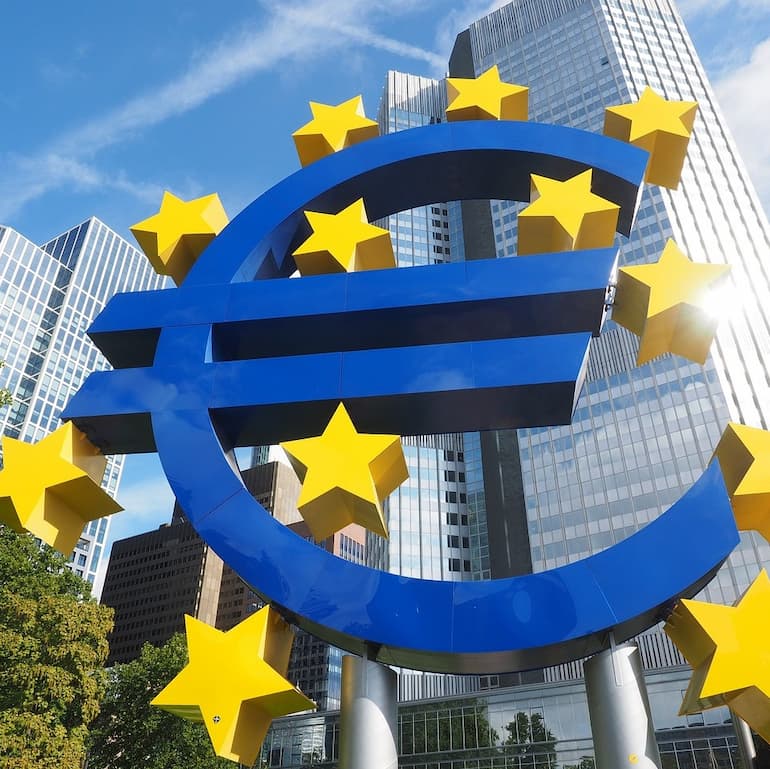Wealth Strategies
ECB Hikes Interest Rates To 23-Year High ‚Äď Reactions

After the European Central Bank (ECB) hiked interest rates this week by another quarter-point to a 23-year high, to help fight inflation, investment managers discuss what this means for the economy as well as the possibility of further interest rate increases.
The ECB has raised the key policy rates by 25 basis points to 3.75 per cent for the deposit rate and 4.25 per cent for the main refinancing rate, a ninth interest rate increase since last July, as economists had expected. The ECB moved rates by the same extent as the US Federal Reserve did earlier this week.
ECB President Christine Lagarde said what comes next is still in the balance, although the central bank is determined to break the back of inflation.
The central bank said interest rates would be set at sufficiently restrictive levels for as long as necessary for a timely return of inflation to its 2 per cent target. The euro area inflation rate currently stands at 5.5 per cent.
Here are some reactions to the hike from investment managers.
Clémence Dachicourt, senior portfolio manager,
Morningstar Investment Management
“The ECB’s latest 0.25 per cent increase in interest rates
comes as no surprise. However, recent activity surveys suggest
the economic slowdown is now affecting both manufacturing and
services within the eurozone. This points towards the ECB nearing
the end of its rate hiking cycle, but the persistency in core
inflation also tells us rate cuts are not on the agenda for now.‚ÄĚ
Jill Hirzel, senior investment specialist, Insight
Investment
“The European Central Bank warned that inflation is still
expected to ‚Äėremain too high for too long‚Äô and raised its deposit
and refinancing rates by 25 bps. Forward guidance was somewhat
vague as we expected. It was noted that future decisions will
ensure that rates remain sufficiently restrictive, but there was
an acknowledgement that financing conditions are increasingly
dampening demand. Data released over the next six weeks will
determine whether a little more fine-tuning will be required ‚Äď we
continue to feel that one more hike may be ahead before this
hiking cycle finally comes to a close.‚ÄĚ
Neil Birrell, chief investment officer. Premier
Miton Investors
“The ECB went with the expected 0.25 per cent rate hike, but of
much more interest is whether there will be another one in
September. That will clearly be subject to the two inflation data
releases between now and then. Whatever they mean for the overall
outlook, either way, the ECB will want to retain flexibility. If
rates are yet not at the peak, we are not far away, and the
conversation may soon move to how long they will stay at the
peak.‚ÄĚ
Seema Shah, chief global strategist, Principal Asset
Management
“The softer inflation figures and weaker economic and bank
lending data of late were welcomed, and even endorsed, by the ECB
but are not sufficient to shift the central bank to a neutral
stance. Certainly, with both headline and core inflation still so
elevated, Lagarde does not have the space to take on an even
mildly dovish tone. Just like the Fed, data dependency is key. A
meaningful further weakening in economic activity data over the
coming two months is likely required to improve the underlying
inflation picture which, in turn, is required to convince the ECB
to stop policy rate hikes. At this stage, a September hike
is a stronger possibility for the ECB than the Fed.‚ÄĚ
Daniele Antonucci, chief investment officer, Quintet
Private Bank (parent of Brown Shipley)
“This isn’t surprising and reflects the fact that, while headline
inflation is slowing across the globe, core (excluding food and
energy) remains elevated. Pandemic constraints have eased, and
manufacturing activity has slowed, pushing headline inflation
lower. While slowing too, the level of core inflation is still
too high, mainly because services activity has been resilient. At
this stage, we think that the central bank’s pause is a moving
target. We’re not too far, given that unlike the US the eurozone
dataflow has deteriorated significantly. But the final mile is
always the hardest and it might well be that the ECB has to keep
raising, reluctantly, for a while longer.‚ÄĚ